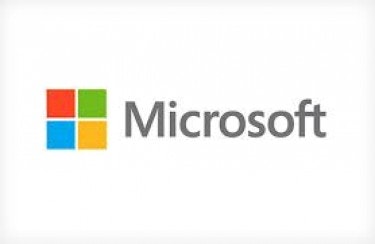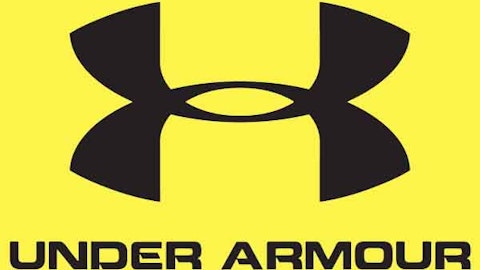In the first quarter of 2013, IDC expected a 7% year on year slump in the PC sector. Actual shipments however dropped an unprecedented 14% year on year, crushing previous expectations. IDC attributed this unexpected steep fall to Microsoft Corporation (NASDAQ:MSFT)‘s Windows 8, which, albeit flaunting a new form factor, pushed PC users toward tablets. The radical changes in Windows 8’s user interface together with the removal of the iconic start button put off potential consumers.
In view of the weakness in the PC sector, Microsoft and Hewlett-Packard Company (NYSE:HPQ) have formulated new behind the scenes strategies to offset the PC slump.
Emerging markets present slew of opportunities
The focus on emerging markets, or growth markets if you will, is not something new. While Brazil, Russia, India, and China remain at the center stage of emerging markets forums, African markets are beginning to gain prominence.
Microsoft Corporation (NASDAQ:MSFT) and Hewlett-Packard Company (NYSE:HPQ) are using Africa, along with other emerging markets, to not only bolster growth but to also offset the PC slump and maintain an edge in light of hard times in the PC sector.
Here are the core reasons for Microsoft’s and HP’s increased activity in Africa
1. Building brand recognition an assurance of future revenue
Microsoft Corporation (NASDAQ:MSFT) has had a longstanding relationship with Africa. This has been greatly instrumental in enhancing the tech titan’s brand in the continent. Nonetheless, the company is not stopping any time soon.
In one of its latest moves in Africa, Microsoft has offered to support the Government of Kenya in implementing the ‘computer to schools’ program. The program, unveiled by Kenyan President Uhuru Kenyatta, will see all primary school students in government schools equipped with laptops.
Through strategic partnerships, Microsoft Corporation (NASDAQ:MSFT) will work toward developing at least five enterprises in each of Kenya’s 47 counties. These enterprises will provide technical support in software, hardware, and connectivity in all public primary schools in the country.
While Microsoft’s initiative falls more in the corporate social responsibility front, it is also an assurance of future revenue. All the pupils and students who will use Microsoft’s software are likely to gravitate toward Microsoft Corporation (NASDAQ:MSFT)’s products in the future.
2. Chance to offset thinning margins in developed markets
In developed markets like the U.S., industry specialists can sing ‘the PC is dead’ all they want. However, in emerging markets, this song would be like rock and roll in a medieval royal wedding. Despite the drag in global sales, the PC in emerging markets is still very much alive.
The muted response toward Windows 8 was not because it was inferior, but largely because it was way too superior. The software was more inclined toward touch, and as such, failed to catch on because of the slow adoption of touch in the PC sector. However, PC heavyweights don’t have to worry about Windows 8 in emerging markets. Here, operating systems such as Windows 7 and the popular Windows XP are still widely used.
Although PC bigwigs will not make any off-the charts profits in emerging markets any time soon, the sustained demand presents a chance to offset the thinning margins in developed markets. Hewlett-Packard Company (NYSE:HPQ), in particular, needs additional revenue. In the second quarter of 2013, the company’s top line fell 10% year on year to $27.6 billion.
3. Room to try out alternative revenue generating activities
Cloud computing has developed from being a speculative field for tech companies to become a prime gem for the PC sector. PC heavyweights have turned the technology into a prized revenue earner, Hewlett-Packard Company (NYSE:HPQ) included.
In the U.S., however, competition is too tough. Bigger players like International Business Machines Corp. (NYSE:IBM) are elbowing out players like HP through recurrent service overhauls and constant signing of new deals. In its most recent move, IBM announced enhancements throughout its systems portfolio that would aid the faster adoption of cloud computing among organizations. As part of the improvements, IBM has advanced a new mobile solution based on its Worklight server that will enhance clients’ access to millions of mobile users by reducing mobile application deployment times to as little as 30 minutes.
At the moment, HP is in no position to wage a combative battle against International Business Machines Corp. (NYSE:IBM). Not only does IBM have overflowing coffers and a wide client base, but Hewlett-Packard is currently cash strapped.
Emerging markets, however, present an opportunity for Hewlett-Packard Company (NYSE:HPQ) to capitalize on cloud computing without much competition. Back in Kenya (again), Hewlett-Packard has inked a cloud computing deal with Central Bank of Africa (CBA). The deal, inked earlier in the year, was worth $800,000. Going by standards set by Wall Street’s movers and shakers, the deal value is relatively dismal. Nonetheless, the cloud computing deal is indicative of things to come and further signals growth potential moving forward.
HP’s 3PAR storage system will allow CBA to reduce its administration time by 90% and its cut its costs by 50%. In addition, it will increase the bank’s storage capacity by 41% to 50 terabytes. These huge benefits are likely to attract CBA’s competitors, some of which are bigger, toward cloud computing. And since the deal is not exclusive, there is huge growth potential for HP. Kenya has been keyed out for rapid economic growth and technological advancement moving forward. HP’s increased presence in the country is therefore a good play.
Conclusion
As illustrated, HP and Microsoft Corporation (NASDAQ:MSFT) are making notable inroads in emerging markets. However for these two, the huge catch is not corporate social responsibility or potential growth as many would want to believe. It is the opportunity to offset slow progress in the PC sector.
Lennox Yieke has no position in any stocks mentioned. The Motley Fool owns shares of International Business Machines. and Microsoft. Lennox is a member of The Motley Fool Blog Network — entries represent the personal opinion of the blogger and are not formally edited.
The article 2 Tech Titans Working Behind the Scenes to Offset the PC Slump originally appeared on Fool.com and is written by Lennox Yieke.
Copyright © 1995 – 2013 The Motley Fool, LLC. All rights reserved. The Motley Fool has a disclosure policy.





